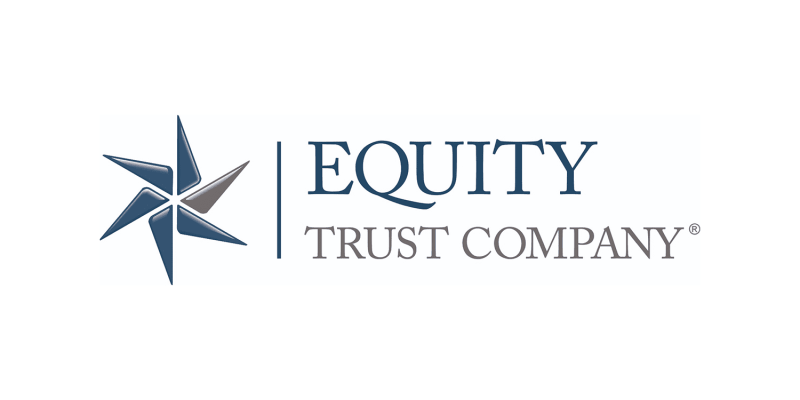Contents
We independently evaluate all recommended products and services. If you click on links we provide, we may receive compensation. Learn more.
Self-directed individual retirement accounts (SDIRA) are intended to open up retirement portfolios to the full range of alternative assets. Self-directed IRAs give experienced investors the ability to go beyond the regular mix of stocks, bonds, and funds that are staples within traditional investment portfolios. Pure self-directed IRAs can be set up to invest in private placements (investments in private companies) that focus on any alternative asset you can imagine. This runs the range from real estate to precious metals to digital currencies and everything in between.
Accessing the full power of a self-directed IRA generally requires working with a custodian rather than an established brokerage, as the latter tend to restrict their SDIRAs to financial market assets. Unfortunately, the alternative investment arena also tends to attract bad actors. When assessing the best self-directed IRA companies, we prioritized support in setting up and managing the legal obligations and the reputation of the company as much as the range of investment options and the fees involved. It is important to note that the account holder is ultimately responsible for due diligence on all investments and overall compliance with IRS rules, so this type of account is meant for investors with a high level of investment experience.
Best Self-Directed IRA Companies 2023
- Best Overall: Equity Trust
- Best for Audit Protection: IRA Financial
- Best for Real Estate Investing: uDirect IRA
- Best Online Portal: The Entrust Group
- Best Investor Experience: Alto IRA
- Best for Larger Portfolios: Rocket Dollar
Best Self-Directed IRA Companies View All Best Self-Directed IRA Companies
- Our Top Picks
- Equity Trust
- IRA Financial
- uDirect IRA
- The Entrust Group
- Alto IRA
- Rocket Dollar
- See More (3)
- Final Verdict
- Frequently Asked Questions
- Methodology
Best Overall : Equity Trust
- Account Types Available: Traditional and Roth IRAs, SEP IRAs, SIMPLE IRAs, and solo 401(k)s. Non-retirement accounts include health savings accounts (HSA) and Coverdell education savings accounts.
- Checkbook Control: No
- Fees: $50 online setup ($70 paper), annual fee varies by portfolio value ($225 below $15,000 to $2,250 for accounts over $2 million)
Why We Chose It
Equity Trust gets the nod as the best self-directed IRA company by virtue of its experience, size, and customer service capacity. Equity Trust has been in operation since 1974, holds 237,000 customer accounts with $39 billion in assets, and has over 400 associates to support clients.
Pros & Cons Pros
-
Established track record as an SDIRA custodian
-
No transaction fees on the custodian side
-
Personalized support through over 400 associates
Cons
-
Fees are high, particularly at lower balances
-
No checkbook control
Overview
Equity Trust has a long history and is one of the larger non-bank custodians offering self-directed IRAs to regular investors. The Equity Trust arrangement is the traditional custodian relationship where you direct the custodian to make investments on your behalf. This means you do not have direct checkbook control like some other self-directed IRA providers.
Like many of the companies offering self-directed IRAs, a lot of Equity Trust’s resources and experience are rooted in the real estate space. Direct ownership of real estate is an alternate investment that many people feel more comfortable with than perhaps even the traditional financial market assets. Equity Trust has built on this real estate base to offer support for more niche investments, including private equity, promissory notes (private debt), and cryptocurrencies. The company also offers up the usual mutual funds, stocks, and ETFs that you would find at a regular brokerage.
Equity Trust hosts an “Investment District” on its site that provides clients with some providers that can give simplified exposure to alternative investments. There is, of course, a thick paragraph of legal text at the bottom of each page that amounts to “do your own due diligence, we are not endorsing this investment.” All the self-directed IRA companies share this approach and it is not hard to find examples of self-directed IRAs being the vehicle mentioned as part of a securities fraud filing.
Equity Trust has experience on its side, good customer service, and a decent platform for managing your investments. On the downside, the fees are higher than some of its competitors. This is particularly noticeable on the lower end of the assets under management. On $100,000, the annual fee works out to $500, whereas it is $225 at $10,000. There are also separate annual membership fees if you want a Gold level service ($249) or a Gold level service prime ($499) membership, which provides access to additional resources and expedited customer service.
These higher fees are somewhat offset by Equity Trust waiving its transaction fees, so you may save overall compared to an SDIRA company that charges per transaction. It is also important to remember there will still be transaction fees imposed by the seller for many investments. Beyond fees, the lack of checkbook control will be a non-starter for investors looking for the ultimate flexibility in a self-directed IRA. Overall, however, Equity Trust is an established company with a decent platform, educational resources, and access to customer service, making it an easier leap for investors who are used to the experience in large, traditional brokerages.
Best for Audit Protection : IRA Financial
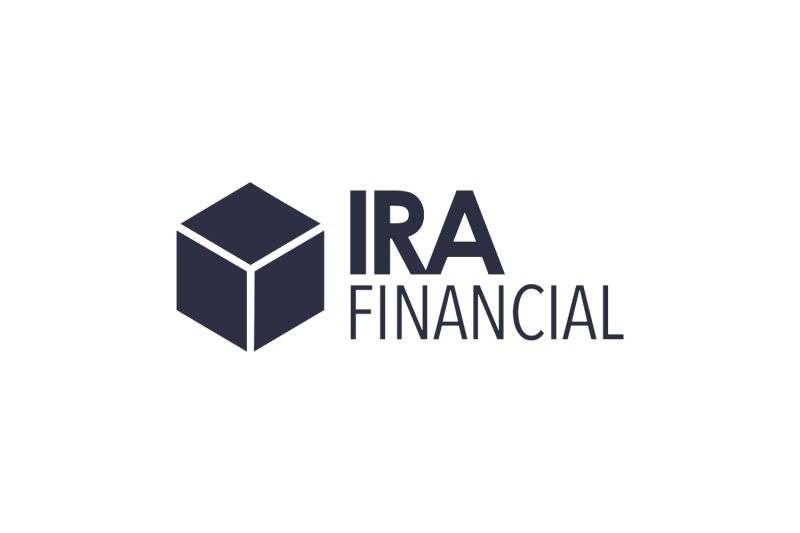
- Account Types Available: Traditional and Roth self-directed IRA (custodian and LLC checkbook control versions), traditional and Roth solo 401(k)s
- Checkbook Control: Yes
- Fees: Free set-up and $400/year annual fee for custodian SDIRA, $999 setup and $400 per year for LLC SDIRA. Annual compliance service can be purchased for an additional $299/year.
Why We Chose It
IRA Financial handles all of its customers’ IRS reporting and administration and offers a premium service with unlimited IRA tax and consulting services. IRA Financial offers a full IRS audit guarantee that its structures will pass legal scrutiny, making it our choice as the best self-directed IRA company for audit protection.
Pros & Cons Pros
-
Audit guarantee
-
Access to unlimited tax support for premium subscribers
-
Option for custodian or full checkbook control
-
Flat annual fee
-
Solid educational resources
Cons
-
Newer player in the space
-
Account setup takes time
-
High initial setup cost
Overview
IRA Financial was founded in 2010, giving it over a decade of experience in the business. This is respectable, but it still puts IRA Financial in with the technology driven disruptors in the space as opposed to the firms with long track records. IRA Financial’s key point of differentiation is its robust audit guarantee and tax-related support. This reflects the fact that the firm was set up by a former tax attorney, Adam Bergman.
IRA Financial has in-house tax professionals that do all the IRS reporting and administration on your behalf. This service can be expanded with a $299 annual premium compliance service that gets you unlimited tax consulting, expedited support, audit guidance, and more. Most IRA companies draw a clear liability line where your audit is your problem, so IRA Financial is going above and beyond that even though the enhanced services come at an extra cost.
Outside of the audit services, IRA Financial’s overall offering is solid. IRA Financial offers the traditional custodian arrangement or the self-directed IRA with an LLC for complete checkbook control. The annual fee for both is a flat $400 per year regardless of asset values and there are no transaction fees. The main difference is that setting up the LLC self-directed IRA costs $999 while the traditional SDIRA has no setup fees.
The fixed fees and checkbook control combined with enhanced audit support make IRA Financial particularly attractive to investors looking for maximum flexibility and advice on staying on the right side of the IRS rules. To set up an SDIRA LLC, some patience is required as it can take one to three weeks to get everything up and running.
We also like the fact that IRA Financial is accredited with the Better Business Bureau. A BBB accreditation isn’t a magical shield, but it does provide a forum to see how customer complaints are addressed, as well as a code for the company to abide by. As IRA Financial is a smaller, newer company, it doesn’t have the same volume of reviews and coverage, but what there is is generally positive.
Best for Real Estate Investing : uDirect IRA
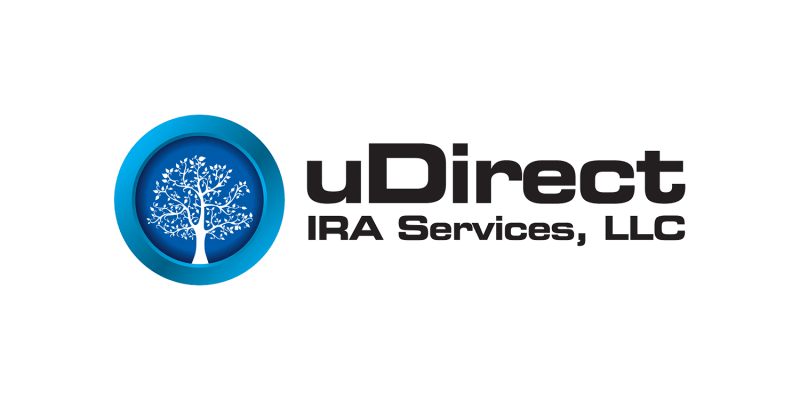
- Account Types Available: Traditional and Roth IRAs, SEP IRAs, health savings accounts, solo 401(k)s
- Checkbook Control: Yes (allowed, but not supported)
- Fees: Setup fee $50, annual fee $275, $35 transaction fee (after a 6 free lifetime transactions)
Why We Chose It
uDirect IRA was initially created to help real estate investors make use of self-directed IRAs as an ownership tool. uDirect IRA has since branched out to the broader range of alternative assets, but real estate investing remains its core strength.
Pros & Cons Pros
-
Resources tailored to real estate investment
-
Allows checkbook control
-
Low annual fee
Cons
-
Checkbook control is allowed, but not actively supported
-
Transaction and miscellaneous fees
Overview
uDirect IRA has been in business since 2009, with an initial focus on the potential for self-directed IRAs to create value for real estate investors. Real estate is believed to be the most popular self-directed IRA investment, so this focus has continued for uDirect IRA even as it has integrated a wider range of alternative investments.
Although relatively new to the space, uDirect IRA actually tends to a more traditional custodian arrangement. Although the company allows clients to set up a checkbook-style IRA, you are left on your own to organize the creation of the LLC and must maintain the $325 minimum account balance separate from the funds in the LLC to remain compliant on your uDirect IRA account. Whether you need an LLC or not depends how you have structured your investments and whether they will require frequent transactions.
In terms of overall annual fees, uDirect IRA is on the lower end, but a transaction fee of $35 can add up once you use your six free lifetime transactions. Before you start investing, however, uDirect IRA prefers you reach out to discuss the investment and how best to go about it. It has more resources in the real estate realm, including how to find a non-recourse lender to stay IRS-compliant when getting financing through the SDIRA. uDirect also requires your self-directed IRA to keep a 10% cash cushion for upkeep costs on property. If you don’t have sufficient funds, uDirect IRA will not approve the purchase of additional properties as your custodian.
uDirect IRA is also accredited with the Better Business Bureau. Again, a BBB accreditation mainly means that there is a public forum for complaints and that the company has agreed to abide by a code. This does help confer some confidence despite a relatively shorter history in the business. Although you can set up self-directed IRAs at other firms to make the investments, uDirect IRA gets the nod in terms of real estate due to the specialized knowledge the firm obviously has in this space.
Best Online Portal : The Entrust Group
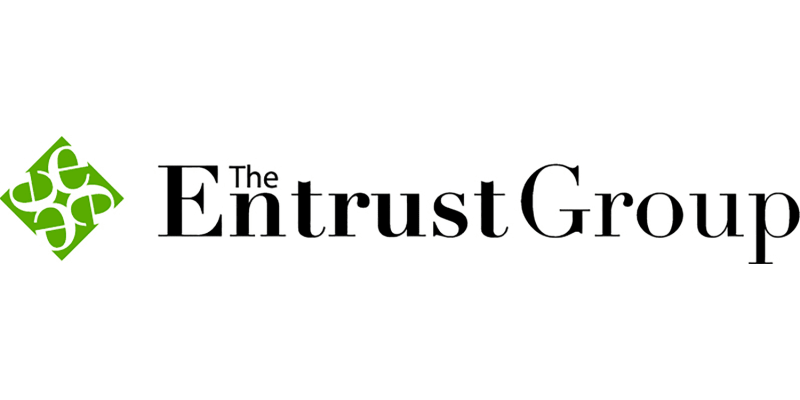
- Account Types Available: Traditional and Roth IRAs, SEP IRAs, SIMPLE IRAs, solo 401(k)s, health savings accounts, and Coverdell education savings accounts
- Checkbook Control: Yes (allowed, but not supported)
- Fees: Setup fee $50, annual fee $199 for a single asset and 0.15% of total asset value for accounts over $50,000, $299 annually for accounts with more than one asset (0.15% based on account value still applies); transaction fees dependent on asset type.
Why We Chose It
The Entrust Group has been in the self-directed IRA space since 1979, but it isn’t afraid of innovation. In addition to a credit card solution for real estate-related expenses, the Entrust Group has an investment portal for finding private offerings and a client portal that secured its spot as our pick for the best online portal for self-directed IRAs.
Pros & Cons Pros
-
Long track record as a custodian
-
Online marketplace for private investments
-
Credit card for paying real estate expenses
Cons
-
Flat annual fee and an asset value based fee
-
Checkbook control is allowed, but not directly supported
Overview
The Entrust Group is a rare IRA company with a long track record that has embraced the technology powering the newer upstarts in its industry. Entrust Group’s online portal is modern and paired with a mobile app. Investors can initiate investments and sell them using either platform, but the ease of this will depend on the asset.
Entrust Connect is the company’s private marketplace where investment offerings that other Entrust Group clients have invested in are listed. This is meant to be a source of opportunities, but you still have to do your own due diligence as a listing is not an endorsement.
Although it is not necessarily a platform enhancement, Entrust Group does offer a credit card to mimic the ease of checkbook control without having to go through the setup of an LLC. This prepaid Visa allows you to pay for common real estate expenses for a one time setup fee of $25 and a quarterly admin fee of $9. Entrust Group does allow the establishment of an LLC for checkbook control, but you'll have to do the legwork yourself, via a third party.
On the downside, the Entrust Group combines a flat fee with an asset value fee. While the total cost is roughly in line with other self-directed IRA companies, the fees range from $199 to $2,299 annually depending on account size, the number of transactions, and so on. The $2,299 figure is an annual cap, so that is the highest fees will climb excluding one-time fees (purchase and/or sale of real estate for example) and transaction fees (wires, transfers, etc). Although it is not the most straightforward fee structure, the Entrust Group provides a clear guide to fees and a few examples to illustrate them.
Other strong points for the Entrust Group are the quick onboarding process, strong customer service, and well populated learning center covering many common self-directed IRA topics. The educational resources include regular webinars anyone can register for.
Best Investor Experience : Alto IRA
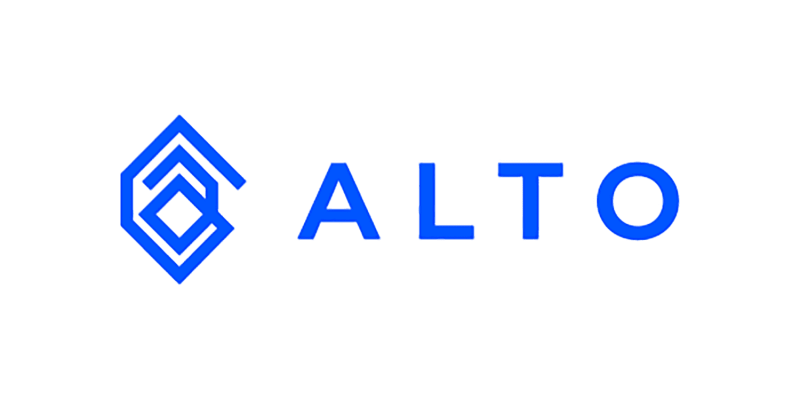
- Account Types Available: Traditional and Roth IRAs, SEP IRA
- Checkbook Control: Yes (allowed but not supported)
- Fees: No setup fee, $10/month or $100/annually, $10 transaction fee
Why We Chose It
Alto IRA is a streamlined version of a self-directed IRA. Investors looking for an easy entry into a smaller selection of alternative investments will find Alto IRA a low-cost way to get a self-directed IRA up and running.
Pros & Cons Pros
-
Quick account setup
-
Very low fees
-
Streamlined investment experience
Cons
-
Limited universe of investments
-
Checkbook control support is declining
Overview
Alto IRA is one of only two on our list of best self-directed IRA companies with less than a decade in business. Alto IRA seems to have selected a low-cost, streamlined self-directed IRA as its particular angle for disrupting the industry. Alto IRA is still refining its business model and this has shown up as a shift away from offering an LLC IRA. Alto IRA still allows for a checkbook IRA to be set up, but its support is scaled back to match other providers where you contact a third party and then instruct Alto IRA to move funds into the new LLC in a typical client-directed transaction.
Alto IRA’s core products are now the Alto IRA (Roth, traditional, or SEP IRA) and the Alto CryptoIRA. The Alto IRA is the traditional custodian IRA with an extremely low account fee and easy access to investments through alternative investment providers like AngelList, FarmTogether, Ignite Social Impact, and so on.
As with other SDIRA provider marketplaces-that-are-not-marketplaces, the listing of these opportunities is not an endorsement and you are responsible to do your own due diligence. The idea, however, is that you will be able to quickly find the exposure you want to alternative investments though this smaller universe of opportunities. Of course, you can still pursue the traditional client direct transaction, but this is not the intention behind the Alto IRA platform.
There is exposure to crypto through the opportunities available in Alto IRA’s regular IRA through partners like Eaglebrook Advisors. For investors looking to hone in on particular coins, however, Alto IRA offers its CryptoIRA with integration directly into Coinbase. The account fees for this account are waived in favor of a 1% trade fee. For investors looking to exclusively hold cryptocurrency in an IRA, Alto IRA offers one of the simplest, most direct methods available.
Alto IRA has a slick platform, responsive customer service, and an innovative model for simplifying the self-directed IRA. That said, the company is moving away from a pure self-directed IRA offering, with the ability to direct private investing through the custodian or an LLC is being phased out in favor of the streamlined offering.
Best for Larger Portfolios : Rocket Dollar
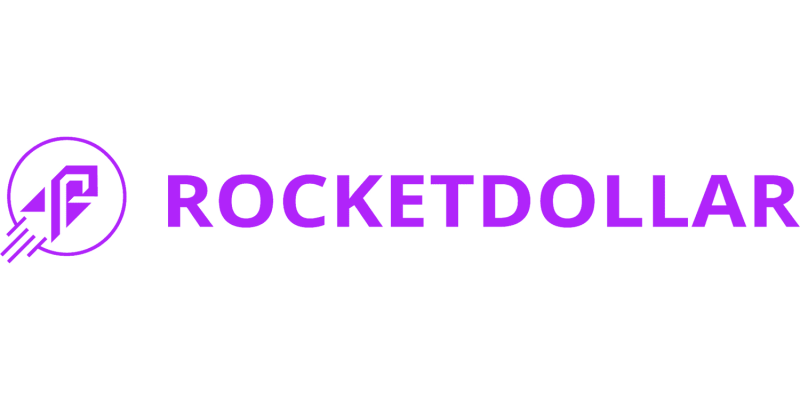
- Account Types Available: Traditional and Roth IRA, SEP IRA, beneficiary/inherited IRA, and solo 401(k)
- Checkbook Control: Yes
- Fees: $360 setup and $15 per month for silver, $600 setup and $30 per month for gold
Why We Chose It
Although Rocket Dollar is one of the newest entrants in the self-directed IRA space, it comes with checkbook control built in standard and incredibly low fees for the service. For investors with large portfolios looking for maximum flexibility, Rocket Dollar is hard to beat.
Pros & Cons Pros
-
Checkbook control comes standard
-
Low fees
-
Prepaid Visa debit card available
Cons
-
Newcomer with limited track record
Overview
Rocket Dollar has been in the business since 2018, but the company’s value proposition will catch the attention of investors looking for self-directed IRAs without any training wheels. Rocket Dollar sets up your self-directed IRA with checkbook control by default and has invested in making the process of opening a self-directed IRA LLC as painless as possible.
Although both the Silver and Gold subscriptions offer access to an IRA LLC, you can choose a direct custody IRA through Rocket Dollar at the Silver level where Rocket Dollar acts as a traditional custodian. This can be advantageous if you are in a jurisdiction that has a tax on LLCs like California.
Like many of the other SDIRA companies, Rocket Dollar has a partner marketplace where you can filter existing opportunities by targeted asset classes, minimum investment level, whether you need to be an accredited investor, and account compatibility. Like all the others, this is accompanied by a hefty disclaimer that there is no endorsement conferred by a listing.
More important than the marketplace, Rocket Dollar puts a large focus on bringing your own deal through the checkbook control function. By making the LLC part of the core accounts, Rocket Dollar empowers investors to find their own opportunities. All the accounts are set up with a bank account and can be linked up with a Visa debit card to make upkeep payments on investments like real estate simple.
Rocket Dollar is ideal for people with larger portfolios because the one-time setup cost for an LLC IRA is significantly lower than average and the monthly fees work out to $180 annually for Silver and $360 for Gold, regardless of the account value. Even the setup fee of $600 and $360 annually for Gold comes in lower than just the setup for an LLC IRA at many self-directed IRA companies.
The other reason we recommend Rocket Dollar primarily for larger portfolios is that wealthier individuals are more likely to be sophisticated investors. Rocket Dollar is exactly what it advertises itself as—a streamlined path to a self-directed IRA with full checkbook control. This is as flexible as an investment account gets, so it is important that the investors looking at the opportunities available through Rocket Dollar’s marketplace and in the broader world are well experienced in doing their own due diligence.
Final Verdict
The less regulated nature of the investments available to investors with self-directed IRAs make it difficult to find good data. In broad terms, however, it appears that the most common alternative asset held through self-directed IRAs is ultimately real estate, whether this is direct ownership or indirect through notes, LLCs, REITs, and so on. This makes sense as real estate is an asset many investors are even more intimately familiar with than the traditional ones in the financial market.
All of the self-directed IRA companies above can help you purchase and maintain real estate inside an IRA, but they offer different ways of managing maintenance payments and different fee structures. There is also a difference in how much support SDIRA companies put into helping you with the paperwork, supporting you in setting up an LLC IRA, and backing you in case of an IRS audit. The more complex your self-directed IRA portfolio becomes, the more value these additional services may add despite coming with higher fees. In the end, selecting the best self-directed IRA company comes down to your particular situation, investment goals, and, to a lesser extent, the alternative asset mix you are looking for.
Frequently Asked Questions
What Is a Self-Directed IRA?
A self-directed IRA is really just an IRA with the same rules and limits as an IRA through a large broker. While traditional brokerages may offer an account referred to as a self-directed IRA, these generally limit the investor to making their choices among the typical financial market investments.
A purer version of a self-directed IRA is available through companies that act as custodians and give full purchasing control to the account holder to guide investments into any assets that are not prohibited under IRS rule. This opens up the worlds of real estate, private placements (shares in private companies), and private loans. The private placements can be made in companies whose sole purpose is to own specific assets, like precious metals, Bitcoin, or foreclosures, for example, so the flexibility of these investments is really only limited by the IRS prohibitions on self-dealing.
Who Should Get a Self-Directed IRA?
While anyone could get a self-directed IRA, they are best for people with some background in a particular alternative asset that they can’t leverage in a traditional IRA arrangement. For example, if you already hold real estate investments and are looking for a way to buy more in a retirement account, then a self-directed IRA is an ideal vehicle. Self-directed IRAs also work well for experienced and/or accredited investors who want to find assets that are less correlated with the financial markets.
It is important to note that alternative assets tend to have a higher risk profile as well as higher potential returns. Moreover, while fraud does occur in the financial markets (see Enron, Bre-X, WorldCom, Tyco, Bernard Madoff, etc.), financial regulators have noted that self-directed IRAs are at particular risk for fraud as custodians have limited responsibilities in terms of protection and bad actors are attracted to easier to access pools of capital. If you are not in the habit of digging into investment details and other due diligence, self-directed IRAs may not be the best fit.
What Does a Self-Directed IRA Cost?
The costs of a self-directed IRA vary according to company and the services included in the account. Some SDIRAs charge flat fees, while others go by some combination of flat fees and annual fees based on account size. For companies in this review, fees range anywhere from $0 to $999 for setup and from $100 to $2,250 for annual fees. Some SDIRA companies have additional transaction fees ranging from $10 to $250 per transaction. It is important to compare the costs to the service levels provided and the type of self-directed IRA (LLC or not) to see whether the fee is reasonable for the services you will be using.
Methodology
Because self-directed IRAs open the door for investors to go beyond the regular mix of stocks, bonds, and funds, choosing the right SDIRA custodian is critical. When reviewing several of the top SDIRA custodians, we prioritized a number of key criteria like reputation, investment options, checkbook control, fees, and the level of support in setting up and managing the legal obligations.

Article Sources
-
Equity Trust. "Fee Schedule."
-
Equity Trust. "Why Investors Choose Equity Trust."
-
Securities and Exchange Commission. "Administrative Proceeding File No.3-16594."
-
IRA Financial. "Premium Compliance Services."
-
IRA Financial. "Simple, Flat Fees."
-
IRA Financial. "Security."
-
IRA Financial. "About Us."
-
IRA Financial. "Self-Directed IRA Annual Compliance Service."
-
uDirect IRA. "Self-Directed IRA Fees."
-
Linkedin. "uDirect Ira."
-
uDirect IRA. "Why Does Your Self-Directed IRA Need Cash Reserves?"
-
The Entrust Group. "Account Fee Schedule."
-
Linkedin. "Entrust Group."
-
Entrust Group. "myDirection Visa Card."
-
Entrust Group. "Self-Directed Account Fees."
-
Alto IRA. "Alto IRA Fees."
-
Alto IRA. "Alternative Investment Partners."
-
Alto IRA. "Alto CryptoIRA Fees."
-
Rocket Dollar. "Rocket Dollar Pricing."
-
Rocket Dollar. "About Us."
-
Rocket Dollar. "What Is Direct Custody?"
-
Rocket Dollar. "Disclaimer."
-
U.S. Securities and Exchange Commission. "Investor Alert: Self-Directed IRAs and the Risk of Fraud."
